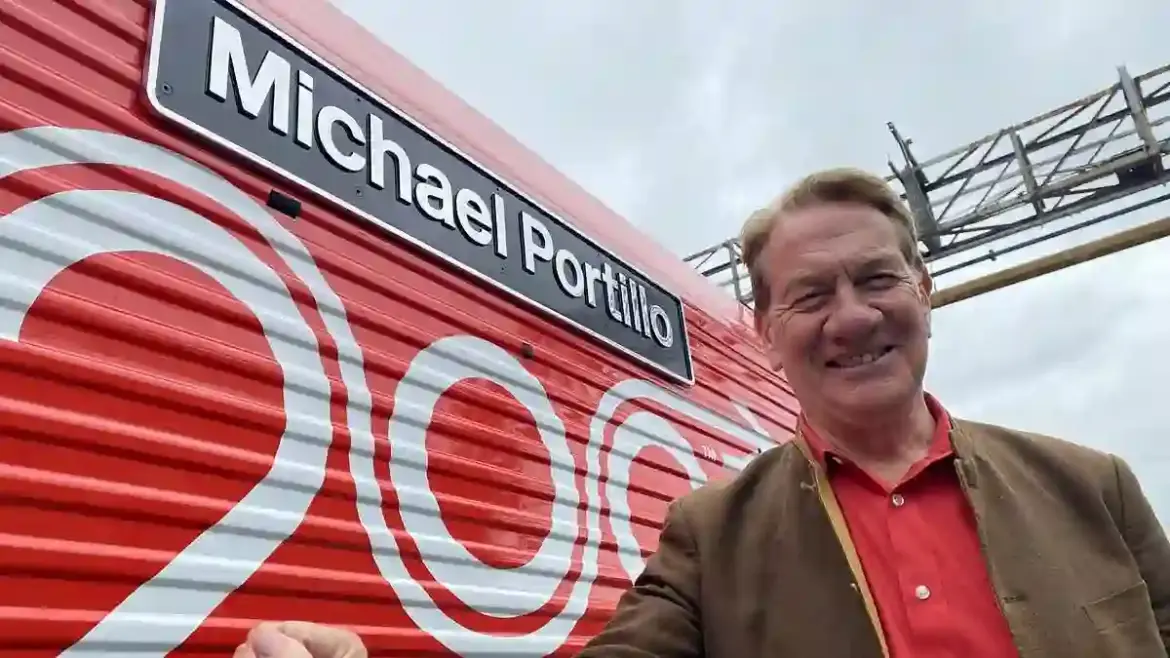Michael Portillo has long since swapped the world of politics for brightly colored trousers and railway adventures.
And in his latest BBC2 series, 200 Years of the Railways, he’s showing that his love for trains is more than just a passing hobby — it’s a history lesson on wheels.
A Festival for Train Lovers
In the second episode, Portillo headed to Derby for The Greatest Gathering, an event that could only be described as Glastonbury for trainspotters — minus the mud and with far better facilities.
With the largest number of locomotives ever brought together in one place, it was a dream come true for enthusiasts.
Michael himself looked like he might burst with excitement.
Even when BBC Radio Derby interviewed him, the big question wasn’t about the industrial might of the Class 55 Deltic or the elegance of the Class A4 steam locomotive. No, they wanted to know where on earth he buys his signature technicolor trousers.
Like a true ex-politician, he dodged the question with style.
A Teacher at Heart
Had Portillo not entered politics, he might have made a brilliant history teacher.
His programs brim with statistics and stories, yet they’re never dry. With his enthusiasm, even the driest facts about railway gauges or steam engines feel lively and engaging.
The Birth of the Intercity
The first intercity line opened in 1830, connecting Liverpool and Manchester.
Its purpose was simple — move cotton quickly from Liverpool’s docks to Manchester’s mills. But not everyone was thrilled.
Skeptics in Parliament argued trains would terrify hens into stopping egg production and even bring about the end of horses.
As it turned out, hens kept laying and horses kept trotting. Meanwhile, the railways proved themselves.
Cotton that took 12 hours to haul by canal could now be delivered by train in just two hours — and in ten times the quantity.
Within a decade, over 1,500 miles of track covered Britain.
For context, the modern 140-mile HS2 project was first proposed 16 years ago and still hasn’t fully materialized — and hens can’t be blamed this time.
More Than Just Speed
Railways didn’t just move cotton faster; they transformed society in unexpected ways.
Fresh fish could now reach cities before spoiling, helping fish and chips become a national staple.
Thomas Cook, inspired by the new technology, launched mass tourism with his first organized rail trip between Leicester and Loughborough.
Even football owes much to the railways. Fans could suddenly travel to games in huge numbers.
By 1904, around 60,000 supporters used the train to reach London for the FA Cup Final between Manchester City and Bolton Wanderers.
And in Manchester itself, workers at Newton Heath’s rail depot formed a football club — one we now know as Manchester United.
A Legacy on the Tracks
“Railways were a transformative technology that changed everything about the way people lived,” Portillo summed up.
And he’s right — they reshaped trade, culture, sport, and leisure.
For him personally, they’ve also built an unlikely second career.
Once a Defence Secretary, now a broadcaster in bold trousers, Portillo has become the nation’s most enthusiastic railway guide — and clearly, he’s still enjoying the ride.
